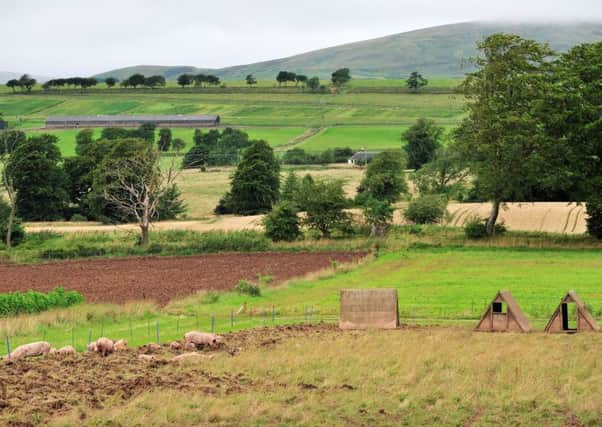Ilona Amos: I was a sceptic but I've decided it's time to go organic


Nowadays the words ‘natural’ and ‘organic’ seem to be shouting out from supermarket shelves, stamped on everything from milk and carrots to wine and shampoo. But what does that really mean, and is organic actually better than the alternative?
The arguments in favour are numerous.
To be labelled organic, food and drink must meet strict guidelines laid down by the EU. Accreditation from the Soil Association requires even tougher standards. Food, health, beauty and textile products that hold this badge have been produced to the highest possible animal welfare and environmental standards.
Advertisement
Hide AdAdvertisement
Hide AdAlmost 300 pesticides can be routinely used in intensive agriculture and are often present in non-organic food. Just 20, derived from natural ingredients, are allowed in organic production – and only under restricted circumstances.
No herbicides such as glyphosate, which has been linked to cancer, can be applied. This means residues in food should be lower than in conventionally produced food. Research suggests that if all UK farming was organic, pesticide use would drop by 98 per cent.
Organic practices are kinder to the planet, so can help promote biodiversity – studies show there are up to 50 per cent more birds, bees and other wildlife on organic farms.
Animals raised organically are also treated better, being kept in free-range conditions and fed a natural diet. There is also no routine use of drugs, antibiotics and wormers, which is commonplace in intensive livestock farming.
All organic food is fully traceable so you can be sure of what you’re eating. Organic processed foods contain no hydrogenated fats, which are linked to heart disease.
Plus, organic standards outlaw genetically modified crops, even as animal feed.
So what are the downsides?
Firstly, there’s the cost. Organic produce is often more expensive that its non-organic counterparts.
Organically grown fruit and vegetables are also likely to go off quicker, as they are not treated with radiation to make them last and don’t contain artificial preservatives. This mean there is greater potential for waste.
Advertisement
Hide AdAdvertisement
Hide AdContrary to popular belief, organic farming does permit the use of some chemicals.
There is very little conclusive evidence to prove that organic produce is more nutritious or better for human health.
My verdict? The jury may still be deliberating when it comes to direct health benefits, but I’m going to join the stampede – the organic market has been growing steadily in Scotland in recent years, increasing by nearly 20 per cent in the past 12 months alone.
And now is a good time to join their ranks. Saturday sees the start of Organic September, a Soil Association initiative encouraging people to adopt the lifestyle.
And the best news is that there’s a wider choice of organic goods on offer than ever before – more than 1,000 new products have been certified in the last six months, from nut butters to sea vegetables. Not sure how they taste together but I’ll let you know.
